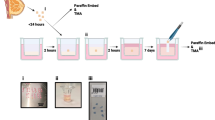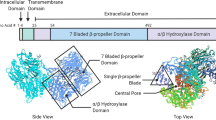Summary
This study was aimed to explore the influence of breast cancer associated fibroblasts (CAFs) in migration and invasion of breast cancer cell line MCF-7, and investigate whether hepatocyte growth factor (HGF) is involved in this process. Primary breast CAFs and their corresponding normal breast fibroblasts (NFs) were obtained by collagenase digestion. On the basis of the co-culture, the migration and invasion capacity of MCF-7 cells was compared between CAFs and NFs by Transwell. The difference in the HGF expression between them was detected by ELISA. The secretion of HGF was knocked down by using RNA interference technology in CAFs. Then the changes of migration and invasion capacity of MCF-7 cells were investigated by Transwell. Eventually, we isolated high-purity CAFs and NFs, and the CAFs had a stronger ability in promoting MCF-7 migration and invasion than the NFs. ELISA results demonstrated that CAFs secreted higher HGF, and the capacity of MCF-7 migration and invasion was declined after knocking down the secretion of HGF in CAFs by RNA interference. It is suggested that CAFs can promote MCF-7 migration and invasion through HGF in vitro.
Similar content being viewed by others
References
Kalluri R, Zeisberg M. Fibroblasts in cancer. Nat Rev Cancer, 2006,6(5):392–401
Orimo A, Gupta PB, Sgroi DC, et al. Stromal fibroblasts present in invasive human breast carcinomas promote tumor growth and angiogenesis through elevated SDF-1/CXCL12 secretion. Cell, 2005,121(3):335–348
Crawford Y, Kasman I, Yu L, et al. PDGF-C mediates the angiogenic and tumorigenic properties of fibroblasts associated with tumors refractory to anti-VEGF treatment. Cancer Cell, 2009,15(1):21–34
Gao CF, Vande Woude GF. HGF/SF-Met signaling in tumor progression. Cell Res, 2005,15(1):49–51
Jin L, Fuchs A, Schnitt SJ, et al. Expression of scatter factor and c-met receptor in benign and malignant breast tissue. Cancer, 1997,79(4):749–760
Beviglia L, Matsumoto K, Lin CS, et al. Expression of the c-Met/HGF receptor in human breast carcinoma: correlation with tumor progression. Int J Cancer, 1997,74(4): 301–309
Mantovani A, Allavena P, Sica A, et al. Cancer-related inflammation. Nature, 2008,454(7203):436–444
Mantovani A, Schioppa T, Porta C, et al. Role of tumor-associated macrophages in tumor progression and invasion. Cancer Metastasis Rev, 2006,25(3):315–322
Raaijmakers MH, Mukherjee S, Guo S, et al. Bone progenitor dysfunction induces myelodysplasia and secondary leukaemia. Nature, 464(7290):852–857
Ma WW, Adjei AA. Novel agents on the horizon for cancer therapy. CA Cancer J Clin, 2009,59(2):111–137
Grugan KD, Miller CG, Yao Y, et al. Fibroblast-secreted hepatocyte growth factor plays a functional role in esophageal squamous cell carcinoma invasion. Proc Natl Acad Sci U S A, 2010,107(24):11026–11031
Author information
Authors and Affiliations
Corresponding author
Additional information
This project was supported by grants from the National Natural Science Foundation of China (No. 81000979; No. 30901584; No. 30801224) and the National Key Basic Research Program Foundation of China (Program 973) (No. 2009CB521800).
Rights and permissions
About this article
Cite this article
Chen, P., Mo, Q., Wang, B. et al. Breast cancer associated fibroblasts promote MCF-7 invasion in vitro by secretion of HGF. J. Huazhong Univ. Sci. Technol. [Med. Sci.] 32, 92–96 (2012). https://doi.org/10.1007/s11596-012-0016-8
Received:
Published:
Issue Date:
DOI: https://doi.org/10.1007/s11596-012-0016-8




